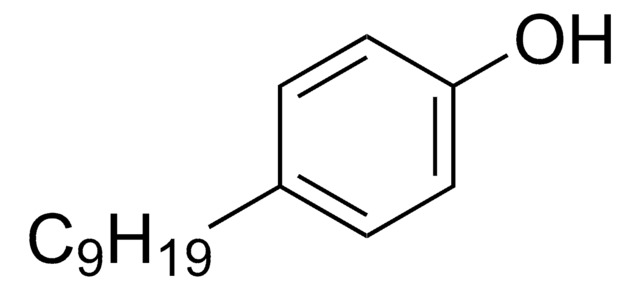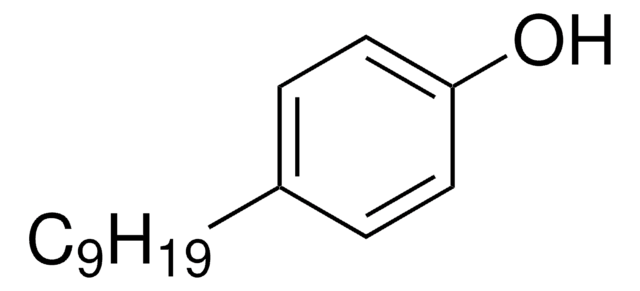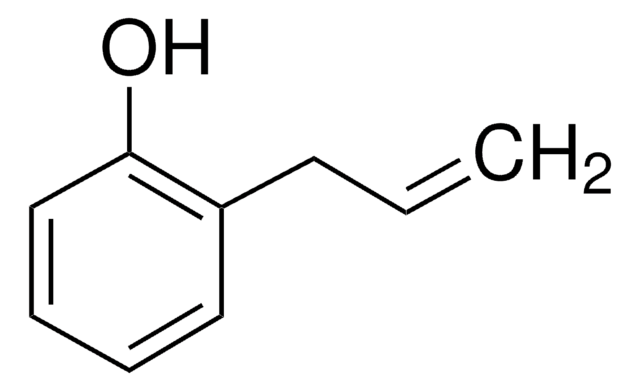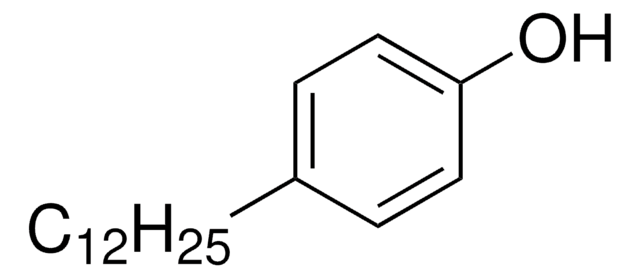290858
Nonylphenol
technical grade, mixture of ring and chain isomers
About This Item
Recommended Products
grade
technical grade
Quality Level
refractive index
n20/D 1.511 (lit.)
solubility
water: slightly soluble 4.9 mg/L±0.4 mg/L
density
0.937 g/mL at 25 °C (lit.)
SMILES string
CCCCCCCCCc1ccc(O)cc1
InChI
1S/C15H24O/c1-13(2)7-5-3-4-6-8-14-9-11-15(16)12-10-14/h9-13,16H,3-8H2,1-2H3
InChI key
JSFITYFUKSFPBZ-UHFFFAOYSA-N
Gene Information
mouse ... Esr1(13982)
rat ... Ar(24208)
Looking for similar products? Visit Product Comparison Guide
Related Categories
General description
Application
- Chlorination of Emerging Contaminants for Application in Potable Wastewater Reuse: Disinfection Byproduct Formation, Estrogen Activity, and Cytotoxicity.: Investigates the formation of disinfection byproducts, estrogen activity, and cytotoxicity during chlorination of nonylphenol in potable wastewater reuse applications, offering insights into water treatment safety protocols (Cochran et al., 2024).
- Triple-Mode Sensor Coupled by Photoelectrochemical, Electrochromic, and Spectral Signals for Sensitive Visualized Detection of Nonylphenol.: Describes the development of a sensitive triple-mode sensor for detecting nonylphenol, integrating photoelectrochemical, electrochromic, and spectral signals, which could be instrumental in environmental monitoring and industrial process controls (Cao et al., 2023).
Signal Word
Danger
Hazard Statements
Precautionary Statements
Hazard Classifications
Acute Tox. 4 Oral - Aquatic Acute 1 - Aquatic Chronic 1 - Eye Dam. 1 - Repr. 2 - Skin Corr. 1B
Storage Class Code
8A - Combustible corrosive hazardous materials
WGK
WGK 3
Flash Point(F)
>235.4 °F - closed cup
Flash Point(C)
> 113 °C - closed cup
Personal Protective Equipment
Choose from one of the most recent versions:
Already Own This Product?
Find documentation for the products that you have recently purchased in the Document Library.
Our team of scientists has experience in all areas of research including Life Science, Material Science, Chemical Synthesis, Chromatography, Analytical and many others.
Contact Technical Service












